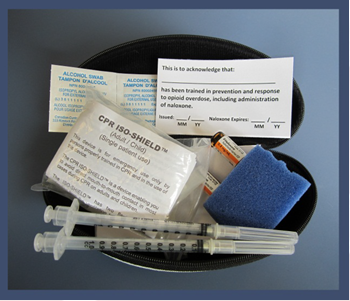A warning has been issued following a spike in opioid overdoses in Barrie and up to Bracebridge in late-February.
For the latter half of February, Dr. Lisa Simon, associate medical officer of health with the Simcoe Muskoka District Health Unit, said the number of suspected overdose visits to local hospitals, including Royal Victoria Regional Health Centre, nearly doubled compared to any other two-week period in recent months.
“There are periods of the year where we’ll see either increases or decreases, so we’re always looking at what the new baseline is,” Simon said. “Yes, we see these numbers wax and wane over time, and these numbers will likely come down, but when we see a sustained increase, it’s important to get the message out.”
The main culprit appears to be fentanyl, a dangerous and powerful opioid, being cut into various street drugs.
“The main thing we’re aware of is fentanyl … being cut into other drugs that are available on the street,” Simon said. “Sometimes people are taking fentanyl purposely, but in many circumstances they think they may be taking another drug they’re used to taking in the past, but now it’s contaminated with fentanyl.
“They’re not aware of that and therefore they overdose on the same amount they’ve previously taken,” she added. "So it’s very difficult to know these days what one is taking.”
The health unit is urging recreational drug users to use extra caution and limit themselves to small quantities. Also, don’t use drugs alone and have a naloxone kit on hand in case of an overdose.
The source of the overdoses is not known at this time.
“Opioid addiction, use and overdose is a very complicated issue,” Simon said. “We’ve talked about one piece of that, which is illicit fentanyl and what is likely responsible for the overdoses we’ve been seeing over the last one to two years in Ontario and Canada. However, that’s only part of a much bigger picture.”
Naloxone kits and training are available free of charge and without a prescription for people at risk of overdose as well as their family and friends. Get naloxone by calling the health unit at 705-721-7520, or visit a participating pharmacy.
